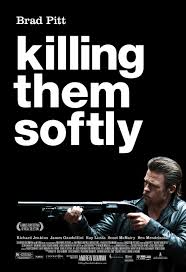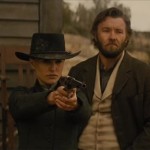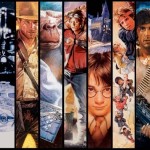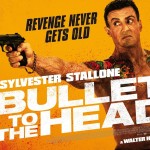Originally published on Examiner.com on December 12, 2012.
Is “Killing Them Softly,” an arty mob drama about the death of the mythical American Dream, too cynical for today’s audiences? And is that even possible? What could be the reason for the backlash against this expertly crafted and confidently presented stripping down of the usually flashy and glitzy mob gangster genre? Are people uncomfortable with the message, or how the film conveyed the message? Or did “Killing Them Softly” lack a strong message in the first place?
After a mob protected poker game gets knocked over by two dumb thugs working for a third, slightly smarter moron, the whole local mafia economy goes into the toilet, because no one wants to go to a poker game to spend money if all that money is just gonna get stolen anyway. So the mob’s beleaguered lawyer (Richard Jenkins, Burn After Reading) calls in the mob’s version of internal affairs, a greasy haired, too cool for school enforcer named Jackie Cogan (Brad Pitt, The Assassination of Jesse James by the Coward Robert Ford), and Jackie grabs the mob underworld by the ankles and holds it upside down and shakes it until he gets the answers he’s looking for.
But make no mistake, this is not the action packed thriller that is being sold by the marketing and advertising (what a shock! You’ve been lied to by the Machine! You’ve been sold lies, a pack of lies!). No, this is a very contemplative and rather angst-ridden film about a bunch of dudes facing a world that’s falling apart around them and trying to maintain some sort of semblance of normalcy and reality by performing business as usual. But as “Killing Them Softly” is peppered with 2008 quotes from President George Bush, President-Elect Barack Obama and various news outlets about the federal auto industry bailouts, the crashing economy and general panic in the streets, it all mirrors the mob’s crumbling economy, and the lack of money in their own circles. Even the mafia felt the pinch in the 2008 economic crash, and this movie very much wallows in this aspect of that depression.
It almost comes across as a revenge fantasy, as Jackie is out to get the guys that stole the money and caused the market shutdown and he’s not planning on giving them golden parachutes for their devious acts. In the world of this movie, when someone steals money that isn’t theirs, they become targets, potential murder victims, unless they somehow get very, very lucky, as opposed to in the real world, where people stole on the grandest order and instead of facing jail time they got bonuses and nice severance packages. Jackie has a severance package for you, and it’s at the end of a barrel of a shotgun.
This is the kind of movie that would introduce a character named New York Mickey (James Gandolfini, Where the Wild Things Are, The Taking of Pelham 123), a bad ass legendary hit man brought in by Jackie, only to show him drink his ass off at the airport bar and again in his hotel room, totally not getting the job done because he’s going through a horrible mid life crisis involving a divorce and a serious lack of cash money. This is just another example of how de-glamorized the cinematic mafia is made in this film, because all of these people are just falling apart, damn the consequences, and even though they insist on operating outside of the law because they see themselves as smarter than the people who live honest lives for little money, they have the same stupid personal problems and financial woes to contend with, just like everyone else. There is no escaping the fear and loathing, not in this movie, not in this America.
This is all reflected in the film’s grand thesis, embodied by Jackie and the way he conducts himself. Even though he is a ruthless hit man, he insists on killing all of his victims from a distance somehow, because he hates dealing with people’s emotions, insisting that it is embarrassing for everyone involved. So he seeks to cut out the emotion from his side of the business and simply treat it all as just that – a business. And how familiar does that sound in this day and age? “It’s just business, nothing personal,” etc. We are now trained to expect that business be devoid of emotion, lacking the human touch, and in this movie, the mafia is the same way, all the way down to Jackie.
The only thing is, in this movie Jackie is the only one with his eyes open, he’s the only one that knows what America has turned into, a culture of business, worshiping currency above all else, and he’s the only one who doesn’t pretend that it’s all anything more than that. While Obama is on the television proclaiming that the United States of America is a community of people working together, Jackie says that it’s just business as usual, the rich get richer, everyone is on their own. And what happens when everyone is on their own? That’s when they start getting ideas to rob some people, getting themselves in trouble, which eventually needs sorting out, either through karma or Jackie Cogan or both, like an angel of death, glad in a black leather jacket, hair slicked back, brow furrowed, shotgun ready to go.
What if the movie going public was sold this movie honestly? Would people have turned out in any more numbers if they knew this was an angsty, arty, condemnation of the kind of business tactics that got us all in this mess in the first place, made in the grand tradition of the hard ass manly directors of yore like Sam Peckinpah and John Milius and Walter Hill? Would that have mattered at all? Maybe there would have been even fewer people. In any case, it’s all said and then, and the movie that condemns improper business tactics and which was sold with misleading commercials made for some bad box office business. But it’ll survive on, like so many well-made movies rejected in their time. “Too soon!” they shout, not comfortable with the face of the fall of an empire, our empire, as it happens around us. No, we insist on sitting back down at the poker table and putting all of our chips in the middle, letting it all ride, fingers crossed that this time no one with a sawed off shotgun comes in through that door.


 Review: ‘Jane Got a Gun’
Review: ‘Jane Got a Gun’ Review: ‘The Lego Movie’
Review: ‘The Lego Movie’ Review: ‘Drew: The Man Behind the Poster’
Review: ‘Drew: The Man Behind the Poster’ Review: ‘Bullet to the Head’
Review: ‘Bullet to the Head’
Leave a Reply
You must be logged in to post a comment.